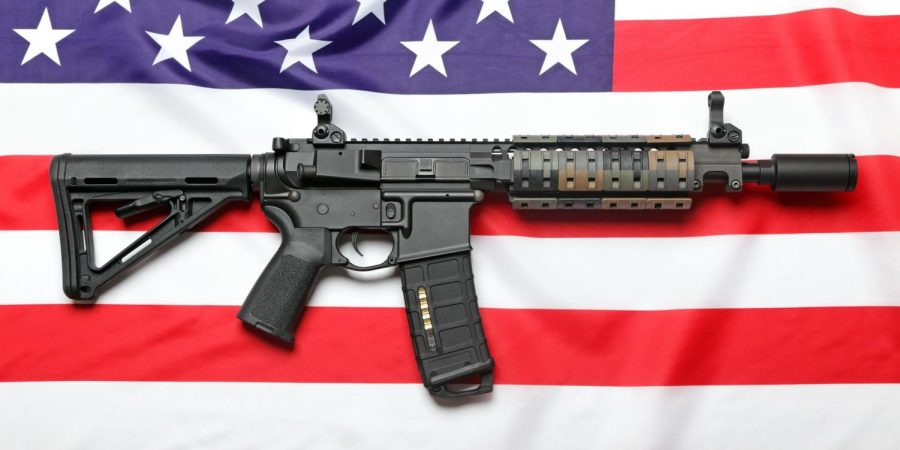Defining the Second Amendment
The heated debate about the Second Amendment, especially in wake of recent mass shootings, rages on. Gun control has always been a hot-button topic; with more guns than people in the U.S., it is evident that we are a gun-centered society. But should we change that?
Liberals argue for stricter laws, because guns, especially models such as the AR-15, make it much easier to slaughter humans. They are hazardous to children, a menace to society, and it’s just common sense to have background checks at the very least. Meanwhile, conservatives advocate for the preservation of their constitutional right to bear arms, including the rights to hunt, defend themselves, and check governmental tyranny. Basically, there are two schools of thoughts on how to stop a bad guy with a gun: respectively, the lack of guns, or a good guy with a gun.
All debate on whether or not we should have gun control inevitably leads to the Second Amendment, which, in entirety, states that “a well regulated militia being necessary to the security of a free state, the right of the people to keep and bear arms shall not be infringed”. Obviously, this wording has some problems.
Gun-control proponents point to the phrase “well-regulated militia” to describe their philosophy. “Well-regulated” clearly implies that there should be some sort of regulation, or control, over the people’s right to bear arms. Additionally, while the word “militia” doesn’t seem important, it is actually crucial. Defined as “a military force” (either civilian or military), militias are actually mentioned in Article 1, Section 8 of the U.S. Constitution, where Congress is delegated the power of “organizing, arming, and disciplining… and for governing” the militia. This, liberals say, inherently gives legislators the power to take away or restructure gun rights in America. Moreover, the “militia” described in the Constitution refers more to the predecessors of today’s armed forces than individual people.
But then there’s the second part of the Amendment- that the right to bear arms “shall not be infringed”. Conservatives seize on this as concrete evidence that the government cannot impose limits on them under any circumstances whatsoever, and any attempt otherwise is a violation of their rights and the wishes of the Founding Fathers.
There appear to be several styles of scrutinizing such a seemingly simple sentence. However, the most extreme left-wingers may argue, it is also legal to repeal Amendments, and if this causes such a problem, why don’t we? The same reason we also haven’t taken less drastic steps: the National Rifle Association (NRA). In the 2016 election season, it spent $54 million to propagate gun rights, giving out millions to candidates who supported them, and would do anything for them. Whether you’re a Democrat, Republican, or independent, you have to admit that the NRA exerts a huge amount of control over the Republican Party, and that both will do anything to stop gun control. With a huge conservative backing, it seems that America’s guns aren’t going anywhere soon, like it or not. Time and time again, we’ve had mass shootings and Democratic-leaning protests advocating gun control, but the steady hand of the NRA has swept away the threats.
The question is not if we should have gun control, but if we can. The wording of the Second Amendment can see arguments on either side, but it’s not a legal issue. In this political climate and this society, it may be many long years until we can see true progress on this issue.


